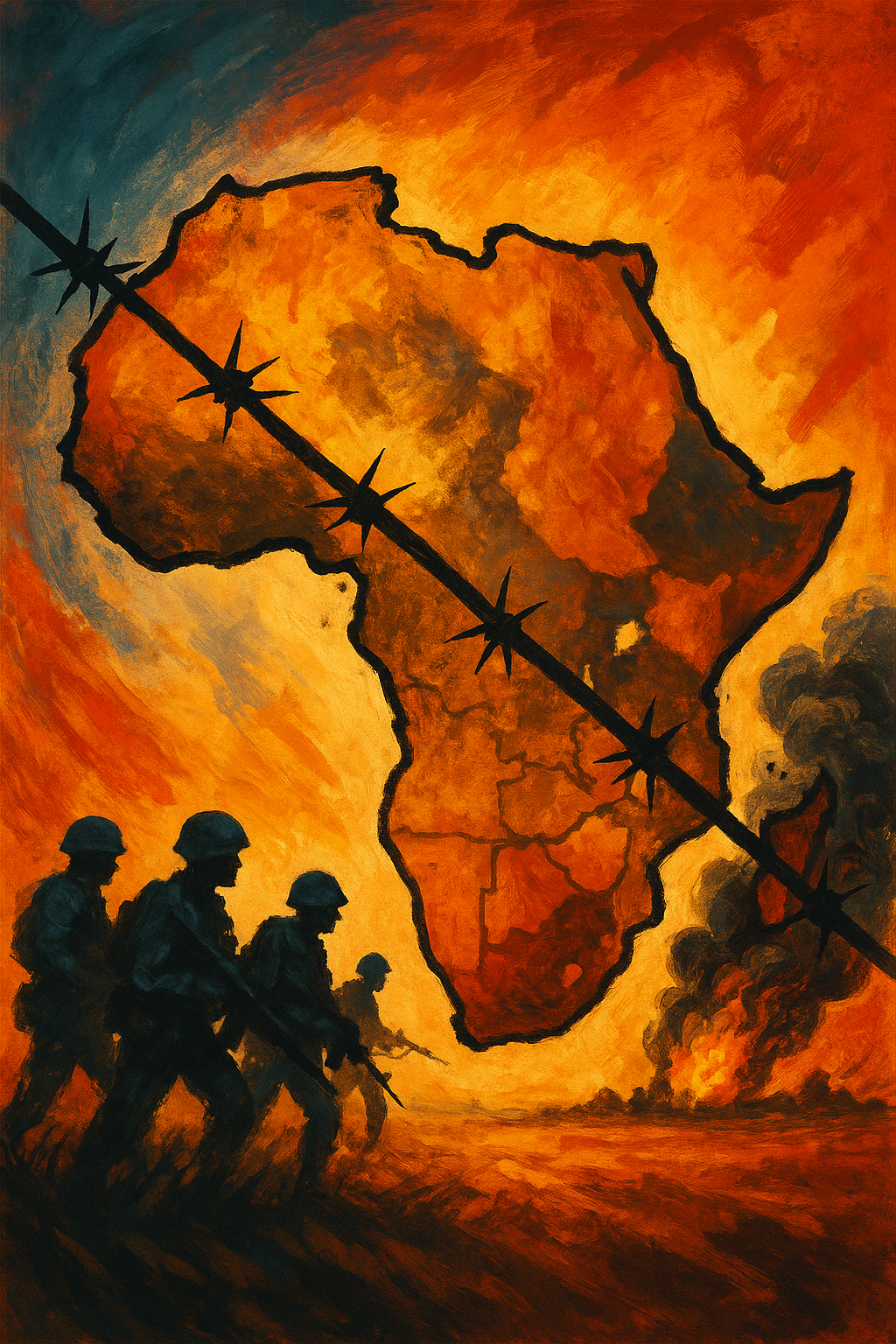The topic of borders and conflict in Africa is not just a historical inquiry—it is a pressing issue that continues to shape the continent today. The way borders were drawn during the colonial era has left lasting scars, fueling disputes and fostering instability long after independence. In this article, we delve into how these borders were established and the profound impacts they still exert on nations and communities across Africa.
The Historical Context of African Borders
The Impact of Colonialism in Africa
The legacy of colonialism has significantly influenced the formation of borders in Africa. During the Berlin Conference of 1884-85, European powers rapidly divided the continent, often with little regard for ethnic or cultural realities. This arbitrary drawing of borders disrupted traditional territories and alliances, leading to enforced separations between communities that had coexisted for centuries. The consequences of these actions can be traced throughout modern African history.
Drawing Borders in Africa: A Process of Exclusion
Colonial powers often ignored existing cultural identities when establishing their territories. For example, groups like the Hutu and Tutsi in Rwanda were placed under a single governance system, setting the stage for future conflict. This shows how the historical borders of Africa often create new conflicts rather than peace. The arbitrary nature of borders not only caused immediate disruptions but also continues to foster mistrust among groups today.
Consequences of African Borders
Ethnic Tensions and Territorial Disputes
The fragmentation of ethnic communities due to borders has led to increased tensions. For instance, Africa’s territorial disputes—like those seen in Sudan and South Sudan—highlight how borders can become flashpoints for conflict. As grievances accumulate, the potential for violence escalates, thereby perpetuating a cycle of unrest.
Nationalism and Borders in Post-Colonial Africa
In the period following independence, many nations struggled to forge a national identity when their borders did not reflect the populations they governed. This dissonance between national identity and geographic delineation often leads to internal strife. Africa nationalism and borders thus become intertwined concepts, as countries seek to solidify their sovereignty while grappling with the divisions imposed by their colonial past.
How Borders Affect Africa Today
Socio-Economic Implications
The effects of borders and conflict in Africa extend beyond ethnic strife; they also have profound socio-economic implications. Disrupted trade routes and restricted movement often hinder economic development. According to research from the African Development Bank, the lack of economic integration caused by these artificial borders represents a significant barrier to prosperity on the continent.
Legacies of Colonial Borders
The legacy of colonial borders in Africa not only includes political turmoil but also socio-economic challenges. Nations burdened by political instability often experience diminished educational opportunities and healthcare access, perpetuating cycles of poverty. Without addressing the historical context of these issues, efforts to foster stability and growth remain limited.
Tackling Borders and Conflict: A Path Forward
Collaborative Efforts for Peace
To address the challenges posed by borders and conflict in Africa, collaborative initiatives are key. Regional organizations like the African Union and ECOWAS (Economic Community of West African States) play an important role in mediating disputes and promoting dialogue among member states. Success stories from such collaborations can offer valuable insights on potential resolution mechanisms.
Education and Awareness
A critical step towards mitigating conflicts involves educating communities about the historical context of their borders. Awareness programs focusing on the impact of colonialism in Africa can help foster understanding and tolerance among different ethnic groups. Furthermore, educational curricula that emphasize the shared histories and cultures of these groups could aid in healing divisions created by colonial borders.
Rethinking Borders: An Innovative Approach
Some experts propose rethinking current borders as a way to address historical grievances. This could include greater autonomy for regions with significant ethnic populations or even reconfiguration of national boundaries to reflect historical ties. Engaging in this dialogue requires radical thinking but can foster long-lasting peace if pursued collaboratively.
Conclusion
The borders and conflict in Africa represent a complex interplay between history and modern-day implications. It is crucial to understand the legacies of colonialism and their influence on contemporary conflicts. Addressing these challenges requires a multifaceted approach that includes education, regional collaboration, and innovative thinking about borders. Only by confronting this past can African nations hope to resolve ongoing conflicts and foster a more unified future.
Call to Action
Do you want to learn more about the intricate dynamics of borders and conflict in Africa? Join the conversation and explore ways we can support peace initiatives and promote education. Together, we can contribute to a deeper understanding of these issues and their implications for the future of the continent.
For further reading, you may visit the following resources:
* Government Research Database for authoritative data on conflicts.
* Academic Research Portal for peer-reviewed studies on African borders and their implications.
Sources:
* African Development Bank reports on economic implications of border conflicts.
* Historical accounts of colonial border drawing and its impact on contemporary Africa.
